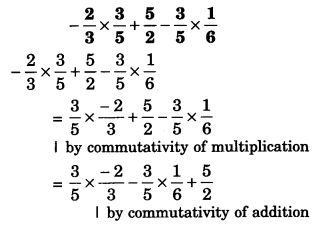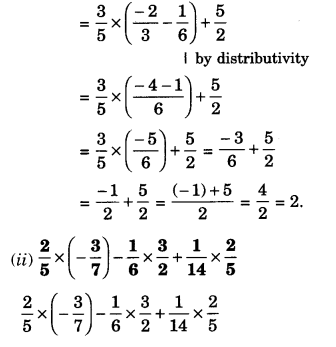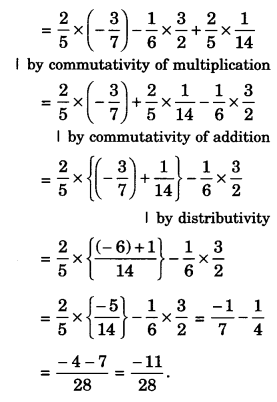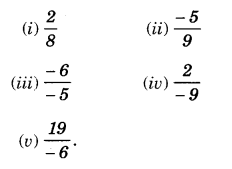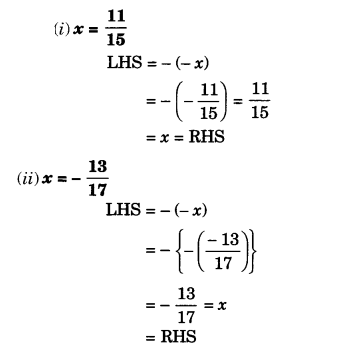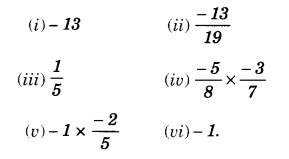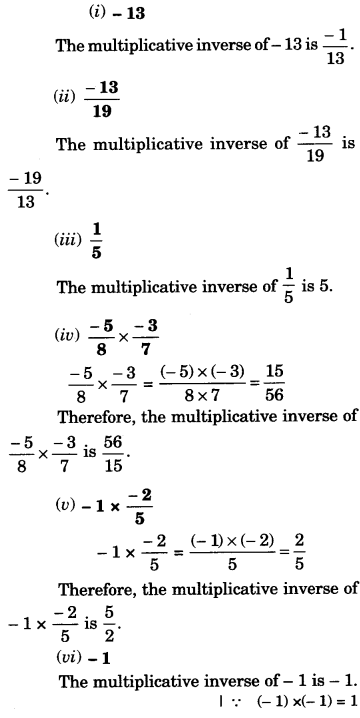NCERT Solutions for Class 8 English Honeydew Chapter 1 The Best Christmas Present in the World are part of NCERT Solutions for Class 8 English. Here we have given NCERT Solutions for Class 8 English Honeydew Chapter 1 The Best Christmas Present in the World.
| Board |
CBSE |
| Textbook |
NCERT |
| Class |
Class 8 |
| Subject |
English |
| Chapter |
Chapter 1 |
| Chapter Name |
The Best Christmas Present in the World |
| Category |
NCERT Solutions |
English NCERT Solutions Class 8 will help you to score more marks in your CBSE board Examination.
NCERT Solutions for Class 8 English Honeydew Chapter 1 The Best Christmas Present in the World
IMPORTANT PASSAGES FOR COMPREHENSION
Read the following extracts and answer the questions that follow choosing the correct options from among the given ones :
I. It was going for very little money. I thought I could restore it. It would be a risk a challenge, but I had to have it. (Page 9)
Multiple Choice Questions
1. The speaker of these lines is
(a) the narrator
(b) the author
(c) Jim
(d) Connie.
2. The ‘it’ in the first sentence refers to
(a) a country
(6) a chair
(c) a desk
(d) a letter.
3. The temptation to buy it was
(a) a risk
(b) a challenge
(c) the quality
(d) the cheap price.
Answers
1. (a) the narrator
2. (c) a desk
3. (d) the cheap price.
II. There was something in there. I reached in and took out a small black tin box. Sello- taped to the top of it was a piece of lined notepaper, and written on it in a shaky handwriting : “Jim’s last letter, received January 25, 1915. (Page 10)
Questions
1. What does the word ‘something’ refer to ?
2. What was the sello taped thing ?
3. Where was the letter found ?
4. Whom was the letter addressed to ?
Answers
1. ‘Something’ refers to the tin box.
2. The sello taped thing was the piece of a newspaper.
3. The letter was found in the tin box. ,
4. The letter was addressed to Jim’s wife.
III. When we had got over the surprise, some of us shouted back. “Same to you, Fritz ! Same to you !” I thought that would be that. We all did. But then one of them was up there in his grey greatcoat and waving a white flag. (Page 11)
Multiple Choice Questions
1. ‘We’ in the first line refers to
(a) French soldiers
(b) the British soldiers
(c) Jim and Connie
(d) the narrator and his friend.
2. ‘Same to you’ here means
(a) Happy Christmas
(b) good feelings
(c) we are same
(d) we are fine.
3. ‘I thought that would be that’. It means that I thought that
(a) it was all
(b) it was a mistake
(c) it was a joy
(d) it was dangerous.
4. The phrase ‘got over’ means
(a) passed
(b) overcame
(c) excited
(d) got out.
Answers
1. (b) the British soldiers
2. (a) Happy Christmas
3. (a) it was all
4. (b) overcame
IV. “Ah, Dorset,” he smiled. “I know this place. I know it very well.” We shared my rum ration and his excellent sausage. And we talked, Connie, how we talked. He spoke almost perfect English. But it turned out that he had never set foot in Dorset, never even been to England. (Page 12)
Questions
1. Who was it that smiled ?
2. How did he know Dorset ?
3. Who is Connie ?
4. Find a phrase in the passage which means ‘so happened’.
Answers
1. It was Hans Wolf that smiled.
2. He had read about Dorset in Hardy’s novels.
3. Connie is Jim’s wife.
4. turned out.
V. Our boys gave them a rousing chorus of While Shepherds Watched. We exchanged carols for a while and then we all fell silent. We had had our time of peace and goodwill, a time I will treasure as long as I live. (Page 13)
Multiple Choice Questions
1. The phrase ‘our boys’ refers to
(a) the students
(b) German soldiers
(c) some British soldiers
(d) the author’s sons
2. Who prompted these boys to sing ?
(a) their boss
(b) their commander
(c) their friends
(d) the German soldiers.
3. Carols are sung on
(a) Christmas
(b) Good Friday
(c) Holi
(d) Diwali.
Answers
1. (c) some British soldiers
2. (d) the German soldiers.
3. (a) Christmas
VI. I folded the letter again and slipped it carefully back into its envelope. I kept awake all night. By morning I knew what I had to do. I drove into Bridport, just a few miles away. I asked a boy walking his dog where Copper Beeches was. (Page 14)
Questions
1. Who had written the letter ?
2. Whom was the letter addressed to ?
3. Why did he drive to Bridport ?
4. Why did he keep awake all night ?
Answers
1. The letter was written by Jim.
2. The letter was addressed to Jim’s wife Connie.
3. He drove to Bridport because he wanted to give that letter to Connie.
4. He kept awake all night thinking about the contents of the letter he had read.
VII. As I was speaking her eyes never left my face. I opened the tin box and gave it to her. That was the moment her eyes lit up with recognition and her face became suffused with a sudden glow of happiness. I explained about the desk, about how I had found it, but I don’t think she was listening. (Page 15)
Multiple Choice Questions
1. The speaker of the above passage is
(a) the author
(b) the narrator
(c) Jim
(d) Hans Wolf.
2. The lady being talked to, is
(a) Connie
(b) the matron
(c) Hans Wolf’s wife
(d) none of the above three.
3. The lady was not listening because
(a) she was sick
(b) she was deaf
(c) she was too happy
(d) she had recognised the speaker
Answers
1. (b) the narrator
2. (a) Connie
3. (c) she was too happy
TEXTUAL EXERCISES
COMPREHENSION CHECK (Page 10)
1. What did the author find in a junk shop ?
2. What did he find in a secret drawer ? Who do you think had put it in there ?
Answers
1. The author found a very old 19th century roll-top desk in a junk shop. It was made of oak. It was in a bad condition. So it was being sold at a cheap price.
2. In a secret drawer of the roll-top desk, the author found a small tin box. There was a letter in that box.
There was a piece of lined newspaper pasted on the box. On it, these words were written : “Jim’s last letter received January 25,1915. To be buried with me when the time comes.” This clearly indicated that it was placed there by the addressee. The address on the envelope revealed that it was for Mrs. Jim Macpherson of 12, Copper Breeches Bridport, Dorset.” So Connie, the wife of Jim Macpherson must have put it there.
COMPREHENSION CHECK (Page 14)
1. Who had written the letter, to whom, and when ?
2. Why was the letter written—what was the wonderful thing that had happened ?
3. What jobs did Hans Wolf and Jim Macpherson have when they were not soldiers ?
4. Had Hans Wolf ever been to Dorset ? Why did he say he knew it ?
5. Do you think Jim Macpherson came back from the war ? How do you know this ?
Answer
1. Jim Macpherson was a captain of the British army. He wrote this letter while fighting the German forces. The letter was dated December 26, 1914. It was addressed to his wife Connie.
2. The letter was written to describe a wonderful incident. It occurred on the Christmas day of 1914. The wonderful thing was that the two armies fighting against each other had celebrated Christmas together.
The initiative was taken by the Germans. First they shouted ‘Happy Christmas’ to the English from the no man’s land. The English responded with “same to you”. This encouraged the Germans. They waved a white flag and crossed the no man’s land to reach the English camp.
Once together, they were very happy. They ate, drank and played a football match. Ultimately when they parted, they did so with a heavy heart.
3. Hans Wolf played the cello in the orchestra when he was not a soldier. Jim Macpherson was a teacher in Dorset when not a soldier.
4. No. Hans Wolf had never been to Dorset. He had been reading English books. Hardy was his favourite author. Hardy’s novel ‘Far from the Madding Crowd’ was his favourite book. This book describes Dorset. So Hans Wolf said he knew Dorset well.
5. Macpherson never came back from the war. His wife Connie knew about his death. That was why she kept the letter in a tin box. She wrote on the top of the box that it was Jim’s last letter.
COMPREHENSION CHECK (Page 15)
1. Why did the author go to Bridport ?
2. How old was Mrs Macpherson now ? Where was she ?
Answer
1. The author went to Bridport in search of Mrs. Jim Macpherson. He wanted to give her back her important letter.
2. Mrs. Macpherson was now 101 years old. She was in the conservatory of a nursing home.
COMPREHENSION CHECK (Page 16)
1. Who did Connie Macpherson think her visitor was ?
2. Which sentence in the text shows that the visitor did not try to hide his identity ?
Answer
1. Connie Macpherson thought that her visitor was her husband Jim Macpherson.
2. The sentence in the text is—“I explained about the desk, about how I found it.”
WORKING WITH THE TEXT (Page 16)
Question. 1.
For how long do you think Connie had kept Jim’s letter ? Give reasons for your Answer.
Answer.
Connie had kept Jim’s letter for a long time. She had received it on January 25, 1915. Jim had written it on December 26, 1914. At that time Jim was an officer, a captain in the English army. A captain in the army is always a young man. It means that Jim’s wife Connie must have also been young. In the story she is 101. It means the letter was about 70¬75 years old.
There are hints also. The table containing the letter was found in a junk shop. Again it indicates its oldness.
Question. 2.
Why do you think the desk had been sold, and when ?
Answer.
The desk must have been sold when Connie’s house had burnt. The table had been damaged by fire as well as water. The fireman must have used water to douse the flames of the burning table.
Question. 3.
Why do Jim and Hans think that games or sports are good ways of resolving conflicts ? Do you agree ?
Answer.
Jim and Hans are people whose heart is full of human kindness. Serving the army, they have been a witness to all the sufferings of war. So it is natural for them to hate war. However the problems between two nations are bound to be there. A non-violent method to resolve these problems is what they desire. It occurs to them that this method could be to compete in games. So they think that games or sports are good ways of resolving conflicts.
I agree that some non-violent method must be found to resolve disputes between nations.
Question. 4.
Do you think the soldiers of the two armies are like each other, or different from each other ? Find evidence from the story to support your Answer.
Answer.
The soldiers of the two armies are like each other. The story is all about it. They like to greet each other. They play football. They eat and drink together. The two captains talk affectionately about their lives away from the field. They agree that the problems can be resolved by playing games instead of fighting wars.
The soldiers of both the armies are eager for the war to end. They want to go back to their families. Thus, there is much which is common between them.
Question. 5.
Mention the various ways in which the British and the German soldiers become friends and find things in common at Christmas.
Answer.
It was the Christmas that made the British and German soldiers friends. The Germans waved a white flag and wished the British a happy Christmas. The British responded with ‘same to you.” They were surprised when the Germans moved further towards them without arms. The British captain was alarmed that it might be a trick. But it wasn’t so.
Then they came close. They shook hands. The Christmas and the ways of celebrating it were common between the two. They played, they ate and they sang carols. The two captains talked of their families. They talked of their own fields of activity when there was no war. They had the same tender feelings about life. They did not want to fight. They wanted peace. They wanted to be with their families as soon as possible.
Question. 6.
What is Connie’s Christmas present ? Why is it “the best Christmas present in the world” ?
Answer.
Connie’s Christmas present was the letter which the author had brought for her. However, in her muddled state she thought that it was not the author but her Jim. She called the author Jim and made him sit beside her. She kissed him on the cheek. For her, her husband had returned after such a long time. So she said that it was the best Christmas present she had ever got.
Question. 7.
Do you think the title of this story is suitable for it ? Can you think of any other title(s) ?
Answer.
The title of the story is Quite suitable. ‘The Best Christmas Present in the World’ refers to the present for the old lady. Otherwise also the story is woven around Christmas. However, it is always possible to find alternate titles. For example, ‘War’ can be another title. The story is after all an anti-war story. ‘Christmas’ could also be a title because the story narrates two important Christmas days.
WORKING WITH LANGUAGE (Page 17)
Question. 1.
Look at these sentences from the story.
I spotted it in a junk shop in Bridport… The man said it was made in the early nineteenth century… This one was in bad condition…
The italicised verbs are in the past tense. They tell us what happened in the past, before now.
(i) Read the passage below and underline the verbs in the past tense.
A man got on the train and sat down. The compartment was empty except for one lady. She took her gloves off. A few hours later the police arrested the man. They held him for 24 hours and then freed him.
Answer
— A man got on the train and sat down. The compartment was empty except for one lady. She took her gloves off. A few hours later the police arrested the man. They held him for 24 hours and then freed him.
- Now look at these sentences. –
The veneer had lifted almost everywhere. Both fire and water had taken their toll on this desk.
- Notice the verb forms had lifted, had taken (their toll).
The author found and bought the desk in the past.
The desk was damaged before the author found it and bought it.
Fire and water had damaged the desk before the author found it and bought it.
- We use verb forms like had damaged for an event in the ‘earlier past’. If there are two events in the past, we use the ‘had’… form for the event that occurred first in the past.
- We also use the past perfect tense to show that something was wished for, or expected before a particular time in the past. For example. I had always wanted one…
- Discuss with your partner the difference in meaning in the sentences below.
When I reached the station, the train left.
When I reached the station, the train had left.
The first sentence means that the speaker was able to get the train. The second sentence means that he missed it. In fact, the first sentence gives the idea as if the train was only waiting for the speaker to get to the station. It left as soon as he reached there. In the second sentence, there was no sign of the train when the speaker reached the station.
(ii) Fill in the blanks using the correct form of the verbs in brackets.
My little sister is very naughty. When she (a)__(come) back from school yesterday, she had (b)___(tear) her dress. We (c)__(ask) her how it had (d)___(happen). She (e)__(say) she (f) __(have, Quarrel) with a boy. She (g)___(have, beat) him in a race and he (h)___(have, try) to push her. She (i)__(have, tell) the teacher and so he (j)__ (have, chase) her, and she (k)___(have, fall) down and (l)__ (have, tear) her dress.
Answer
(a) came
(b) torn
(c) asked
(d) happened
(e) said
(f) had Quarreled
(g) had beaten
(h) had tried
(i) had told
(j) had chased
(k) had fallen
(l) had torn.
(iii) Underline the verbs and arrange them in two columns, Past and Earlier past.
(a) My friends set out to see the caves in the next town, but I stayed at home, because I had seen them already.
(b) When they arrived at the station, their train had left. They came back home, but by that time I had gone out to see a movie !
(c) So they sat outside and ate the lunch I had packed for them.
(d) By the time I returned, they had fallen asleep !

Answer
(a) My friends set out to see the caves in the next town, but I stayed at home, because I had seen them already.
(b) When they arrived at the station, their train had left. They came back home, but by that time I had gone out to see a movie !
(c) So they sat outside and ate the lunch I had packed for them.
(d) By the time I returned, they had fallen asleep !

2. Dictionary work
By the end of the journey, we had run out of drinking water.
Look at the verb run out of in this sentence. It is a phrasal verb : it has two parts, a verb and a preposition or an adverb. Phrasal verbs often have meanings that are different from the meanings of their parts.
- Find these phrasal verbs in the story.
burn out
light up
look on
run out
keep out
Write down the sentences in which they occur. Consult a dictionary and write down the meaning that you think matches the meaning of the phrasal verb in the sentence.
Answer
1. No. 12 turned out to be nothing but a burnt out shell, the roof gaping. (Page 14)
Meaning : ‘Burnt out’ here means ‘completely destroyed by fire’.
2. That was the moment her eyes lit up with recognition and her face suffused with a sudden glow of happiness. (Page 15)
Meaning : ‘Lit up’, here means ‘became bright with happiness’.
Note : ‘Burned out’ and ‘burnt out’, both are correct.
3. Hans Wolf and I looked on and cheered. (Page 12)
Meaning : ‘Looked on’ here means ‘continued to look’ i.e., went on observing as long as they played.
4 .…the schnapps and the rum and the sausage had long since run out. (Page 13)
Meaning : ‘Run out’ here means ‘consumed’.
5. Hans wolf cheered clapping our hands and stamping our feet to keep out the cold as much as anything (Page 12)
Meaning : ‘Keep out’ here means ‘be away from’.
3. Noun phrase
- Read the following sentence.
I took out a small black tin box.
– The phrase in italics is a noun phrase.
– It has the noun—box—as the head word, and three adjectives preceding it.
– Notice the order in which the adjectives occur—size (small), colour (black) and material (tin) of which it is made.
– We rarely use more than four adjectives before a noun and there is no rigid order in which they are used, though there is a preferred order of modifiers/adjectives in a noun phrase, as given below.

Answer
Read and learn yourself.
4. The table below contains a list of nouns and some adjectives. Use as many adjectives as you can to describe each noun. You might come up with some funny descriptions !

Answer
1. a wild, large elephant.
2. a cheerful, round chubby face.
3. a cheerful, circular, multicoloured large brick building.
4. enormous, multicoloured, cold water.
SPEAKING (Page 19)
Question 1.
In groups discuss whether wars are a good way to end conflicts between countries.Then present your arguments to the whole class.
Answer
Wars are never a good way to end conflicts between countries. It is because wars are devastating. They ruin humanity. They can only harm us. A large number of men and women are killed. Many families are destroyed. If we try to find a peaceful solution of the conflicts, the countries would flourish. There would always be peace. Countries will be strong.
Question 2.
What kind of presents do you like and why ? What are the things you keep in mind when you buy presents for others ? Discuss with your partner.
(For example, you might buy a book because it can be read and re-read over a period of time.)
Answer
Whenever we buy presents we keep various factors in mind. First its utility, then durability and then price. We also think of giving the maximum benefit of the present to the person concerned.
WRITING (Page 20)
Question 1.
Imagine that you are Jim. You have returned to your town after the war. In your diary record how you feel about the changes you see and the events that occur in your town. You could begin like this
25 December, 1919
It’s Christmas today, but the town looks…
Or
Suppose you are the visitor. You are in a dilemma. You don’t know whether to disclose your identity and disappoint the old lady or let her believe that her dear Jim has come back. Write a letter to a friend highlighting your anxiety, fears and feelings.
Answer
It’s Christmas today but the town looks gloomy. It’s so natural. This town has lost many of its great sons in the war. The hearts of the people who know them, are burdened with sorrow. They cannot feel cheerful. They know that it’s Christmas. They see the beautiful cold weather and the crisp frosty morning associated with it. They see the beauty but they can’t feel it.
The politicians have visited the town. They have praised the bravery of the dead. They have raised their statues. They have honored their parents. Yet, how can they compensate the loss of a child, a husband or a brother ? War is the most dreadful thing I know of. How I wish an end of all wars ! The problems are bound to be there. Man should find some peaceful way to resolve these problems. Perhaps one world Government will be a good idea. But how to reach it ?
Jim ,
Or
23 Dorset
20 May, 1920
My dear Tom
A recent happening has so surprised me that I can’t help sharing it with you. You know I always wanted a roll-top desk. At last I got a second hand one from a junk shop. I decided to restore it on the 24th December. In the process I came upon a letter in one of the drawers.
It was a very old letter written in early twentieth century. The writer was a captain Jim of the British army. It was kept in a box with the words : Jim’s last letter received January 25, 1915. To be buried with me when the time comes.” The address on the envelope was “Mrs Jim Macpherson, 12 Copper Beeches, Bridport.” I decided to search the lady to whom this letter belonged.
I found her in a conservatory. She was a little confused. She looked at me vacantly. But when I gave her the letter, her eyes lit up. She thought that I was Jim. She made me sit beside her and kissed me. She said that she had got that day the best Christmas present in the world. I tried to tell her who I was and how I had found her letter. But she was not listening.
Now I was in a dilemma. Shall I force my identity on her and disappoint her ? Or shall I let her believe that her dear Jim had come back ? I thought and thought. Then I decided to do the latter. I walked away from her Quietly after sometime.
Michael
Question 2.
Given below is the outline of a story. Construct the story using the outline.
A young, newly married doctor___freedom fighter___exiled to the Andaman and Nicobar Islands by the British___infamous Cellular Jail __ prisoners tortured___revolt by inmates___doctor hanged___wife waits for his return___becomes old__continues to wait with hope and faith.
Answer
This story belongs to the early 20th century. The young Indians wanted to be free. Ironically, most of them had had Western and English education. One such person was a young doctor named Kripal Singh. He was married and had a good practice. One day he came in contact with freedom fighters like Bhagat Singh and Chandra Shekhar Azad. He joined their party.
The struggle required money. So he was involved in an attack on a government bank. He was caught. He was tried in court and sent to exile in Andaman and Nicobar Islands.
Together with others of his type, he was kept in infamous Cellular Jail. There the prisoners were tortured. The doctor could not stand it. He revolted against the prison authorities. He was hanged there.
Back in India, his wife knew nothing. Meanwhile the country became free in 1947. The lady expected her husband to come back but how could he ? She is now very old. Still she is convinced that Kripal Singh would come back. She continues to wait with hope and faith.
We hope the NCERT Solutions for Class 8 English Honeydew Chapter 1 The Best Christmas Present in the World help you. If you have any query regarding NCERT Solutions for Class 8 English Honeydew Chapter 1 The Best Christmas Present in the World, drop a comment below and we will get back to you at the earliest.




